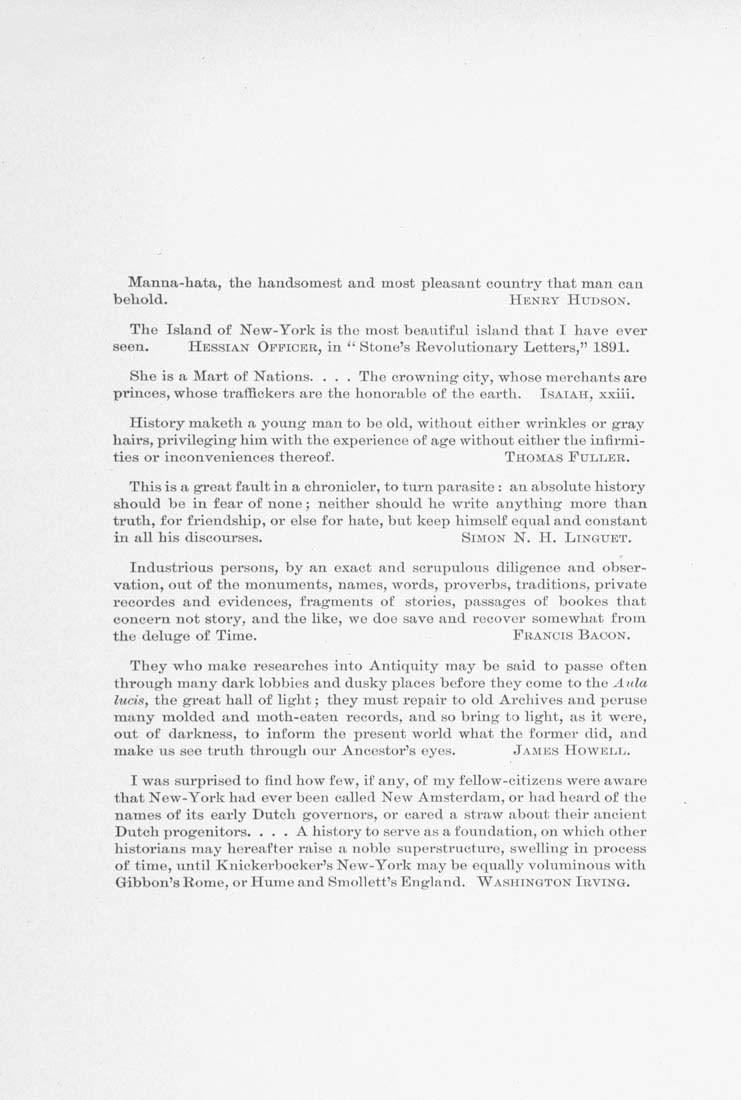Manna-hata, the handsomest and most pleasant country that man can
behold. Henry Hudson.
The Island of New-York is the most beautiful island that I have ever
seen. Hessian Officer, in ^' Stone's Revolutionary Letters," 1891.
She is a Mart of Nations. . . . Tlie crowning city, whose merchants are
princes, whose traffickers are the honorable of the earth. Isaiah, xxiii.
History maketh a young" man to be old, without either wrinkles or gray
hairs, privileging him with the experience of age without either the infirmi¬
ties or inconveniences thereof. Thomas Ful.l.er.
This is a great fault in a chronicler, to turn parasite : an absolute history
should be in fear of none 5 neither should he write anything more than
truth, for friendship, or else for hate, but keep himself equal and constant
in all his discourses. Simon N. H. Linguet.
Industrious persons, by an exact and scrupulous diligence and obser¬
vation, out of the monuments, names, words, proverbs, traditions, private
recordes and evidences, fragments of stories, passages of bookes that
concern not story, and the like, we doe save and recover somewhat from
the deluge of Time. Francis Bacon.
They who make researches into Antiquity may be said to passe often
through many dark lobbies and dusky places before they come to the Aula
lucis, the great hall of light; they must repair to old Archives and peruse
many molded and moth-eaten records, and so bring to light, as it were,
out of darkness, to inform the present world what the former did, and
make us see truth through our Ancestor's eyes. James Howell.
I was surprised to find how few, if any, of my fellow-citizens were aware
that New-York had ever been called New Amsterdam, or had heard of the
names of its early Dutch governors, or cared a straw about their ancient
Dutch progenitors. ... A history to serve as a foundation, on which other
historians may hereafter raise a noble superstructure, swelling in process
of time, until Knickerbocker's New-York may be equally voluminous with
Gibbon's Rome, or Hume and Smollett's England. Washington Irving.
|








